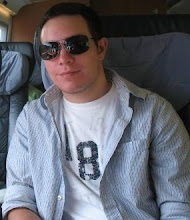Monday, November 2, 2009
It's the Great Pumpkin, Charlie Brown!
Thursday, October 29, 2009
Unit 3, Feeder 1 Rough Draft: Burch Fellowship
UNC’s Burch Fellowship, which began in 1993, is a prestigious honor given to a few of the university’s students each year. The students are awarded grants of up to six thousand dollars in order to explore and research a specific topic of interest to them, “in a way and to a degree not otherwise possible” (as the Fellowship’s site states).
One of the goals of the Burch Fellowship, and as is apparent by the information provided on their site, is to promote the idea that the possibilities for research are limitless. Past recipients of the grant have traveled all over the world to explore and focus on their topics, from South America to Europe to Asia. However, the research need not only be done in foreign countries, as many of the Burch Fellows have stayed within the United States to accomplish their goals. As well, all fields of research are given equal opportunity as the Advisory Board consists of members from various departments from music to psychology to physics. Thus, looking through the list of Fellows shows the variety of subjects examined from fields in English to science to history and culture. While possibilities for research are endless, the website is sure to emphasize the need for feasibility of the proposal and of how it can be accomplished. Along with the proposal, attachments about actual (not estimated) costs are required, along with letters from those in that field to comment on the project’s feasibility. As well, it seems like the proposals chosen often involve aspects of research that can be brought back and used/applied to today’s processes and actions.
Saturday, October 17, 2009
Can't Wait for Fall Break
.jpg)
Saturday, October 10, 2009
Feeder 1 Revision - CNN Video
Donna Shalala adds a lot of details to back up her arguments, whether over why today’s climate is different from that of fifteen years ago or about the public option aspect of the bill. While most of her answers are based on logic and evidence, after she answers the designated question she tends to also reveal her more personal opinion; in her final question about the public option, she seems to speak personally when stating that something must be done to hold the insurance industry accountable for their actions. Thorpe is obviously the one most informed about the previous bill, as he was a part of its creation. This may be why he also seems the one most objectionable and logical about the issue. He gives specific examples about the desired cause of the bill, as well as why it is able to possibly be successful this time around. Ickes mostly gives more general statements about the issues of the bill (with terms about “substance” and the “politics” of getting the bill passed) without much specification. At the interview’s end, he begins to vaguely discuss key elements to drive forth health care but does not detail any of it or what exactly he feels the bill may need (though he admits it needs something).
While each pundit brings out good points about the possibility of today’s health care reform bill, the debate is a one-sided affair as the audience does not receive any other point-of-view since the pundits do not have to defend their opinions. Thus, the audience hears only whether the bill can pass, rather than any opinions on whether it should pass.
Thursday, October 8, 2009
Whip It (2009)

Saturday, October 3, 2009
Zombieland (2009)

Friday, October 2, 2009
Unit 2, Feeder 1: CNN Video "Can Obama Succeed Where Clinton Failed?"
Donna Shalala gives a lot of details with her answers to back up her arguments whether over why today is different from fifteen years ago or about the public option. While most of her answers are based on logic and evidence, after she answers the designated question she tends to also add her personal opinion; in her final question about the public option, she seems to speak personally when stating that something must be done to hold the insurance industry accountable for their actions. Thorpe is obviously the one most informed about the previous bill as he was a part of its creation. Whether because of this, he also seems the one most objectionable and logical about the issue. He gives specific examples about the desired cause of the bill, as well as why it is able to possibly be successful this time around. Ickes mostly gave more general statements about the issues of the bill (with terms about “substance” and the “politics” of getting the bill passed) without much specification. At the interview’s end, he begins to vaguely discuss key elements to drive forth health care but doesn’t detail any of this or what exactly the bill he feels the bill may need.

